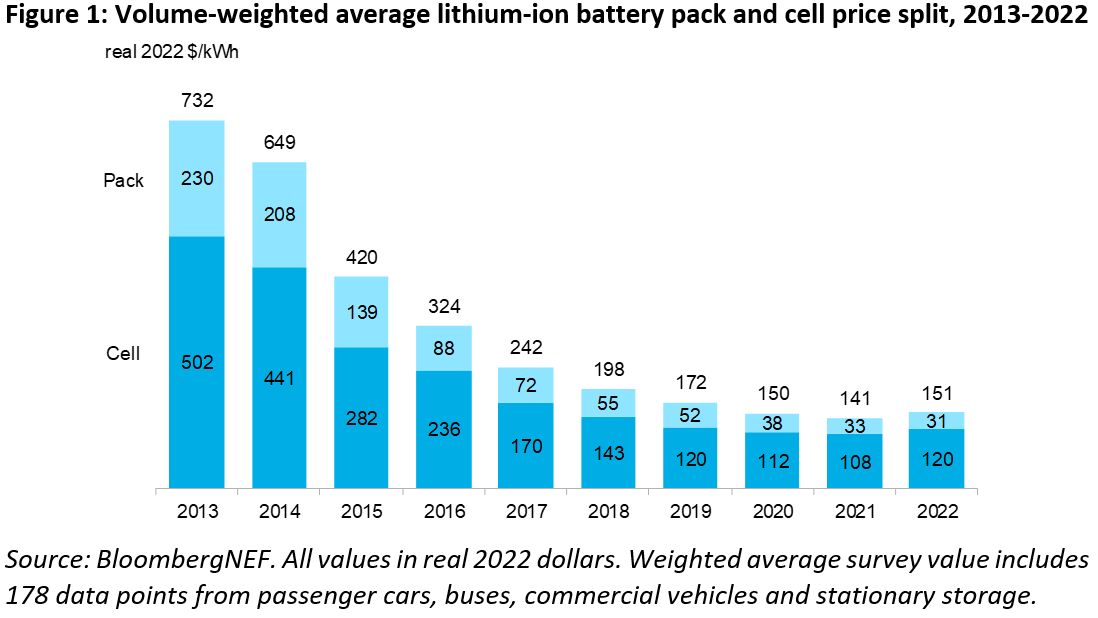7% Rise on Lithium-Ion Battery Pack Prices

Yayoi Sekine, head of energy storage at BNEF, said: “Despite a setback on price declines, battery demand is still reaching new records each year. Demand will reach 603GWh in 2022, which is almost double that in 2021. Scaling up supply at that rate of growth is a real challenge for the industry, but investment in the sector is also rising rapidly and technology innovation is not slowing down.”
Kwasi Ampofo, head of metals and mining at BNEF, added: “Lithium prices remain high due to persistent supply chain constraints and the slow ramp up in new production capacity. Additional lithium supply could ease the pressure on prices in 2024, while geo-politics and trade tension remain the biggest uncertainties for other key battery metal prices in the short-term. Resolving these tensions could help calm prices in 2023 and beyond.”
Continued investment in R&D, manufacturing process improvements, and capacity expansion across the supply chain will help to improve battery technology and reduce costs over the next decade. BloombergNEF expects next-generation technologies, such as silicon and lithium metal anodes, solid-state electrolytes and new cathode material and cell manufacturing processes, to play an important role in enabling further price reductions. (Source – BloombergNEF) #lithiumionbattery #electricvehicles #ev #emobility #automotiveindustry #automotiverecruitment
